Today’s Story Time on Uncanny Japan is one I found in an old collection of Japanese folklore. It’s about a couple of conniving kappa and an innocent young girl. It’s called “The Kappa’s Abyss.”
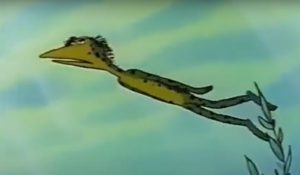
Do you ever have one of those moments when a series of events leads to a choice, a seemingly insignificant one. But after you make that choice, you realize that everything in your life has shifted somehow. You can’t put your finger on it, but later, this is going to be important. You can feel it.
I’m talking about something small, like very small, like driving down the road, seeing a used bookstore, and turning into the parking lot small. Let me tell you why I’m so excited.
The other day my audio and tech guy, Richard, and I found ourselves in a used bookstore. There was interesting stuff everywhere, but it wasn’t until a hour of browsing later, we were just about to leave, when I turned to see a 26-volume set of very antique-looking books; every cloth bound, hardcover tome was wrapped in delicate acetate paper and slid into its own hard sleeve. The volume number and name of an area in Japan written in old Japanese was embossed on the spine along with the words: Nihon no Minwa. Japanese folklore. My jaw dropped.
This was perfect because I’ve just finished my 50th monthly Bedtime Story over on Patreon, and I’m really proud of them, they run the gamut from old favorites like “Kintaro” and “Bunbuku Chagama” to more obscure tales like “The Three Devils” and “The Oil Seller’s Daughter”. But very recently I haven’t been super excited about what I’m finding. It feels the stories are many times removed from the original tale. Kind of like how fairy tales change over the years and lose a bit of their edge, their bite, and magic if you ask me. A lot of time these folktales are written for children to be read by children. Think modern day Grimm’s fairy tales compared to the originals.
After pawing over this book find, there was a momentary pause because we’ve been out of real work for over a year and ends aren’t always meeting, so I don’t like to spend money, but Richard was like “Get them!” And that was that. So I want to give a huge thanks to my patrons for this treasure trove, and they’ll be reaping the benefits because I’m going to start translating these folktales for the monthly Bedtime Stories. I’ve just begun to dip into the volumes, but I’m finding the storytelling much more interesting and way better written than what I’m used to.
Since I do do Storytime here on Uncanny occasionally, I want to read one of the tales today. Because it’s so hard to choose, I grabbed the first volume, opened it randomly, saw a sketching of a kappa, and chose that one. So today I’m going to tell you a brand spanking new kappa folk tale that came from up north near Akita Prefecture. One that I’ve personally never heard before and I’m guessing you haven’t either.
But that’s not all, in order to understand part of the story, I get to tell you a very curious phenomena and Japanese phrase that involves blue butts. And also how I almost ended up in an Arkansas jail.
Hey hey! Today is Story Time here on Uncanny Japan and I’ll be sharing with you quite literally the first tale I translated from my new, old and very precious collection of Japanese folklore. It’s called “The Kappa’s Abyss” and was a joy to read. But while reading, I came across a Japanese phrase that I have always loved for it’s weirdness, so I thought I share that with you first.
Ketsu ga Aoi: Blue Butt Phrase
There is a phrase in Japanese, maybe you’ve heard of it: “shiri ga aoi (尻が青い) or ketsu ga aoi (ケツが青い) ”, literally meaning someone has a blue butt. It’s used to say someone is very young or immature. What does having a blue butt have to do with being young? Well, quite a lot actually. Some of you, I’m sure know all about this. I didn’t, so I want to share. It’s quite interesting actually. And it almost landed me in jail. But I’ll get to that in a minute.
There is something called a Mongolian Spot or MS. Let me just read the first hit I got when searching for it: “Mongolian spots are congenital birthmarks seen most commonly over the lumbosacral area (think lower back and bottom). They are bluish-green to black in color and oval to irregular in shape. They are most commonly found in individuals of African or Asian ethnic background.”
And I’m adding this here, I believe they can also found on people of Native American decent and southern Europeans. It’s just a accumulation of melanin pigment and there’s nothing to be worried about. Most of the time they fade with age.
So right there explains it. If you hear someone being told they have a blue butt in Japanese, it means that they’re still young or immature.
In Japanese they’re called moukohan (蒙古斑). But remember the phrase, although it’s a tiny bit rude, aoketsu, blue butted. Because it will play a part in the story.
Jail Story
But first, how I almost got thrown in a country jail in Arkansas. My son Julyan was like two or three years old and we were back in the States traveling down south to visit some relatives. He had a little stomach ache when we left, but the farther we drove the worse it got. Until it was screaming and clawing at the belly bad. We stopped at the nearest hospital and rushed to the ER.
Now this wasn’t a big hospital and it was after hours. So my memory is just of empty halls and a handful of emergency room staff. They had to do a lot of tests of course. But after a long wait I was called back to the doctor’s office. He shut the door. Put his hand of the phone resting on his desk.
I’ve got no idea what’s going on and I’m trying to stay calm. Meanwhile, he’s got this menacing look on his face and says. I have one question for you. Yes? What nationality is your husband? Japanese, why? He breathes a sigh of relief, smiles, takes his hand off the phone and tells me he was just about to call the police. What?
As it turns out, and I never thought about it before, Julyan’s moukohan were small, dark blue marks on both sides of his lower back. The doctor said one of the nursing staff who was doing one of the tests noticed them and thought that they were bruises. He had almost called the cops right then and there, except he consulted with the ER doctor who just happened to have a Chinese girlfriend and had spent time in China, so he new about these Mongolian Spots.
Then he asked for a huge favor. Can I show your son’s Mongolian Spots to the nursing staff so they’re aware of them in the future. Um, sure? So one of Julyan’s funny stories he gets to tell is how he was held backside forward in front of a nursing staff while both the ER doctor and me explained what mokouhan were. It was a tad surreal and also a close call. Oh, he did have some freaky stomach bug and got medicine that cleared it right up.
Okay, onto today’s folktale. Remember the kappa? I talked about it back in Episode 48, an aquatic, creature, with webbed hands and feet, beak, a tortoise shell back, and saucer type head filled with water? Well, while their image has been revamped of late to make them more kawaii and lovable, in olden times they were scary, dangerous and big jerks.
And that’s it for today, thank you all so much for listening. I want give an extra special virtual bear hug to all my patrons. Because of you I snatched up my very precious, treasure trove of folklore, from which I’ll be translating and retelling a tale for you each month. These are stories from all over Japan and after browsing through titles, 99.9% lore I’ve never heard before. I’m crazy excited about this. Also, if anyone else is interested in getting in on those folktale Bedtime Stories, you can do so for $5 a month over on Patreon. Just search for Uncanny Japan and Patreon.
If you want to hear a non Japanese story read my me, my other show is Soothing Stories Podcast, so check that out. And if you are interested in Japanese sake, shochu, awamori, whiskey, even gin and rum, we’re talking all things alcohol related, give a listen to the Japan Distilled Podcast. Rich Pav is doing their sound and that aside, we both really love their show and content. You’ll definitely learn something and have fun doing so.
Have an amazing day and I’ll talk to you again in two weeks. Bye bye.
Credits
Intro and outro music by Julyan Ray Matsuura
Bama Country by Kevin MacLeod
Link: https://filmmusic.io/song/3417-bama-country
License: https://filmmusic.io/standard-license
Chill Movement by EdiKey20
Link: https://filmmusic.io/song/7796-chill-movement
License: https://filmmusic.io/standard-license
Love Me by DreamHeave
Link: https://filmmusic.io/song/7753-love-me
License: https://filmmusic.io/standard-license

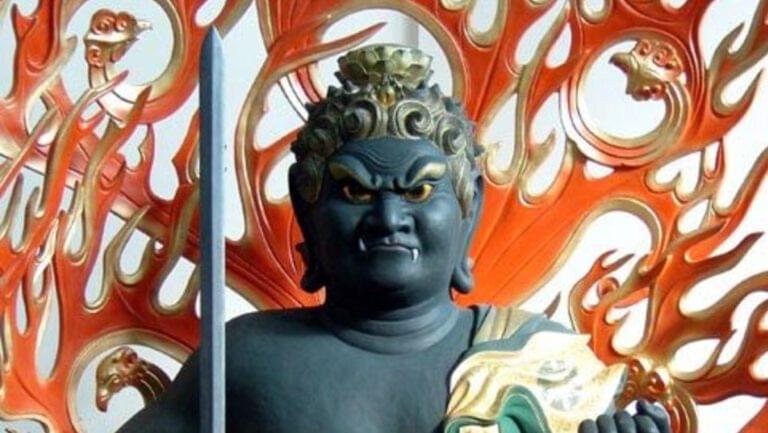
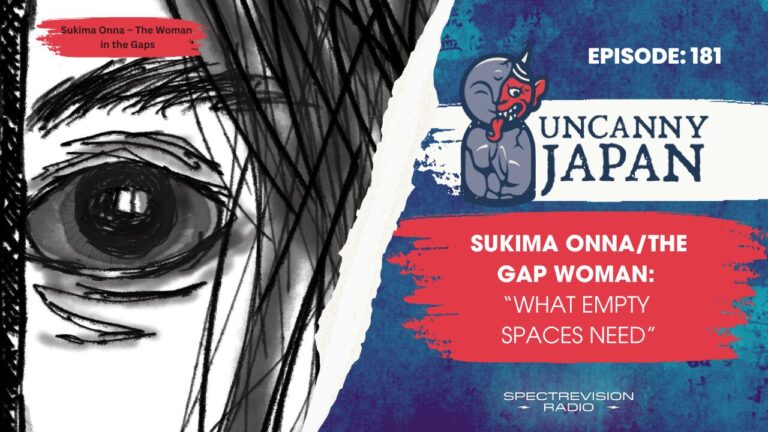
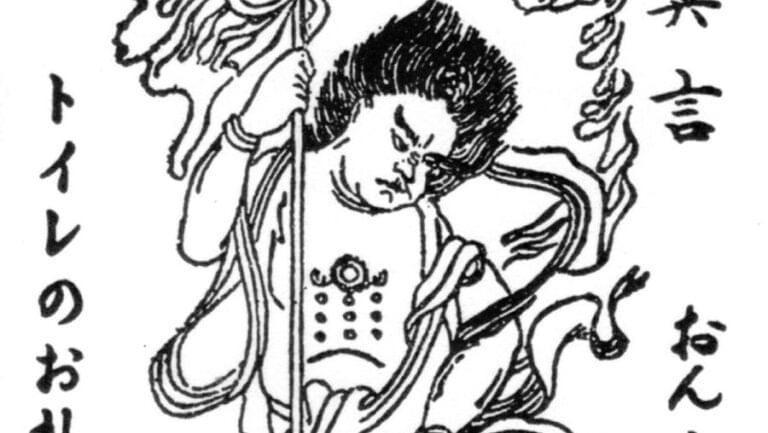
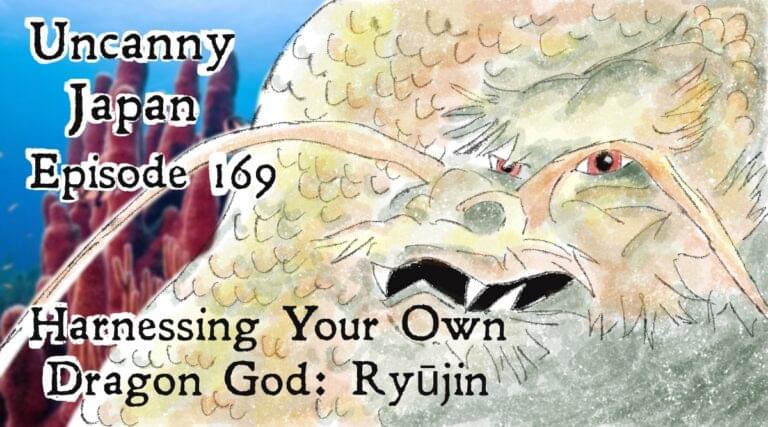


Loved The Kappa’s Abyss. What a great story. I’m so glad you came across that folktale collection and look forward to hearing more!
Thank you, Joanna! Yes, these are so fun to read. It’s hard to choose which one to do next.